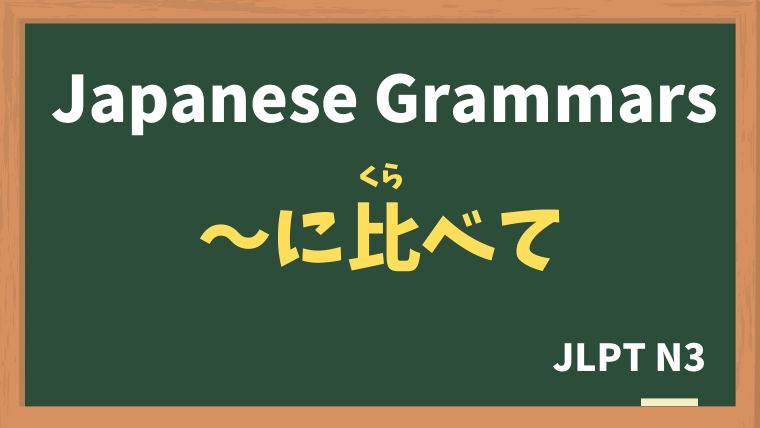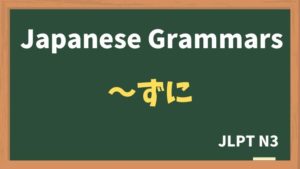
Explanation:〜にくらべて
fa-check-circleMeaning
"compared to 〜 / in comparison with"
Used to make comparisons between two things, highlighting differences or similarities.
fa-check-circleForm
N + にくらべて
fa-check-circlePoints
- Comparison: "〜に比べて" is used to compare one thing with another, often to emphasize a difference in quality, quantity, or any other attribute.
- Focus on Differences: While it can be used to note similarities, it is more commonly used to highlight differences.
- Attaches to Nouns: This expression is typically attached to nouns, indicating what is being compared.
fa-check-circleJLPT Level
N3
Sample sentenes
昨日に比べて今日は少し暖かい。
Compared to yesterday, it is a little warmer today.
日本に比べて、私の国は物価も安いし、寒くないし、住みやすいです。
Compared to Japan, my country’s economy price is cheaper and my country is not cold too, so I think it easier to live.
以前に比べて、私の日本語は上手になったと思う。
Compared to before, I think my Japanese became good.
10年前に比べて、今はJLPTを受験する人がかなり増えた。
Compared to ten years ago, people who take s the JLPT increased very much.
日本語に比べて、英語は文字の種類が少ないので簡単だと思う。
Compared to Japanese language, I think English is easier because the characters used are fewer.
男性に比べて、女性のほうが長く生きる。
Compared to men, women live longer.
昔に比べて、外で遊ぶ子供が減った。
Compared to the old days, children who play outside has decreased.
去年に比べて、今年の冬は暖かい。
Compared to last year, this winter is warm.
日本に比べて、アメリカは車社会だ。
Compared to Japan, the U.S. is a car-centric society.
今月に比べて、先月の売り上げはよかった。
Compared to this month, last month's sales were better.
Vocabulary
| Japanese |
English | |
| 暖かい | あたたかい | warm |
| 以前 | いぜん | before |
| 受験する | じゅけんする | to take an exam |
| 増える | ふえる | to increase |
| 種類 | しゅるい | kind |
| 男性 | だんせい | man / male |
| 女性 | じょせい | woman / female |
| 減る | へる | to decrease |
| 社会 | しゃかい | society |
| 売り上げ | うりあげ | sales |






